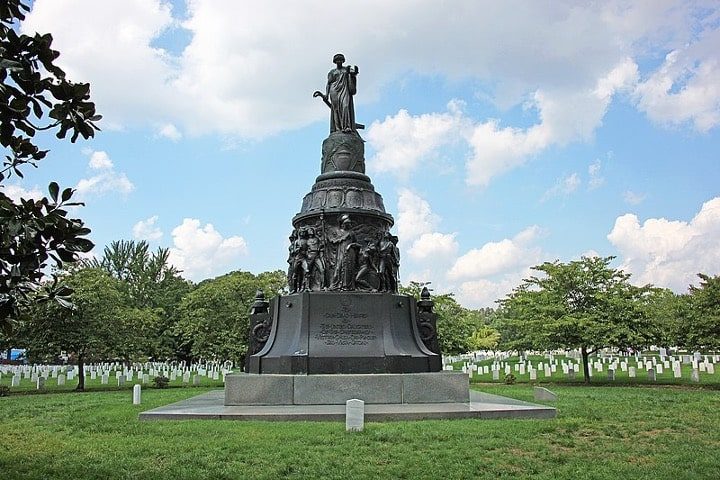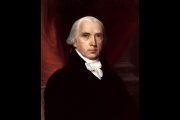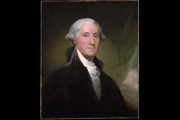
Not only is it now planned to remove the Confederate monument at Arlington National Cemetery in Virginia, near Washington, D.C., but the cemetery’s supervisors have decided to censor any ceremonies honoring the Confederate soldiers buried there.
A memorial service was planned for June 4 by the Confederate Memorial Committee of the District of Columbia (CMC), but terms allowing them to hold any such service were considered so restrictive that the committee opted to not do anything at all, calling the limitations “unacceptable and un-American.”
The draconian terms under which the CMC could meet on the grounds of Arlington included a denial even of being able to hold a service at Jackson Circle, which contains the actual graves of the Confederate dead. Additionally, the CMC would not be allowed to display any flags not previously approved by the authorities; no speakers would be permitted unless they were approved by those same authorities, and the content of their speeches were subject to approval; no floral tributes were allowed; and, finally, there was to be no singing (presumably songs such as “Dixie”).
In short, it is not quite clear what the CMC would be able to do other than visit the cemetery and look at the graves.
Understandably, these insulting dictates were rejected by the CMC. “After weeks of soul-searching by the members of our Memorial Committee, our conclusion is that we find your terms and conditions unacceptable and un-American. We, as Americans, should not be compelled to surrender our constitutional rights of free speech at the gates of Arlington National Cemetery,” wrote Richard Hines, a former senior executive with the General Services Administration (GSA), for the CMC.
Hines reviewed the history of past memorial services for which he served as chairman of the annual event. “The Superintendent and authorities at Arlington National Cemetery, at that time, were without fail, supportive, often going beyond the call of duty in providing color guards, seating, PA systems, and encouraging other features for the occasion.” At that time, the Arlington authorities provided security for the event and accommodations for the firing of period cannons and muskets by Civil War reenactment units. On several occasions, the U.S. Military even provided service vans for the event.
Hines added, “Until quite recently, every President of the United States [since 1914] honored the Southern dead by sending wreaths to Moses Ezekiel’s monument at Jackson Circle, beneath which, as you know, the famous sculptor is buried.” Both Presidents Barack Obama and Donald Trump continued this tradition, but President Joe Biden has predictably refused to do so.
Speakers at these events have included prominent historians, authors, and public officials, including Ed Bearss, chief historian emeritus for the U.S. Park Service; U.S. Senator James Webb (D-Va.); Dr. James “Bud” Robinson, biographer of Stonewall Jackson; and many others. During the past century, there was no censorship of speakers or the content of their remarks, and there were no restrictions on what flags could be used to decorate the veterans’ graves or the placing of wreaths honoring the dead.
Ironically, the grounds of Arlington National Cemetery are from the estate essentially stolen from Confederate General Robert E. Lee. The plantation and Arlington House were built by George Washington Parke Custis, the step-grandson of George Washington. (Washington and his wife, Martha, raised him as their own son after the death of Custis’ father.) Custis had one daughter, Mary Anna Randolph Custis, who married Robert E. Lee.
Upon the death of Lee’s father-in-law in the late 1850s, Lee and his wife inherited the estate, which included slaves. Lee had written a letter to his wife from a military assignment at a fort in Texas a few years earlier, in which he expressed the hope that God, in His providence, would choose to end slavery in America. After Lee inherited Arlington, with its slaves, he also inherited its enormous debts. However, he refused to sell off the slaves, in part or in whole, but rather wished to pay off the estate’s debts and free them — both of which he did just a few short years later.
Yet, today there are some who argue that Lee was a slaveholder. This illustrates why witnesses in trials are sworn to tell the truth — the whole truth — because telling just part of the truth, as in this case, can often be a lie.
After the Civil War began, with Lee serving in the Confederate army, his wife, Mary, left the plantation. It was soon occupied by Union troops, and much of her personal property was stolen by some of them. When she sent an agent to pay the property taxes (amounting to less than a hundred dollars), federal officers refused to allow this. They required that Lee come in in person to pay them — an obviously ridiculous and illegal demand. Then, using the spurious argument that the taxes had not been paid, a tax sale was conducted and the federal government confiscated Arlington.
In 1882, the Supreme Court ruled that the property had been illegally confiscated without due process. The estate — which was already being used as a cemetery — was then returned to Robert and Mary’s son, George Washington Custis Lee. He soon sold it back to the government for $150,000 (about $4 million in today’s dollars) at a signing ceremony, with Secretary of War Robert Todd Lincoln (son of President Abraham Lincoln) present.
About a generation after the war, in an effort at reconciliation, Republican President William McKinley, speaking to the Georgia Legislature, advocated that the U.S. government assume responsibility for the Confederate graves on federal land, including Arlington. In 1900, the federal government agreed to re-inter Confederate graves at Arlington into one consolidated Confederate section. Congressional legislation also directed the U.S. Department of War to take care of the nearly 30,000 Confederate soldiers buried in national cemeteries in the North.
In 1914, the Confederate section was officially dedicated, with speeches that didn’t discuss the causes of the war, but instead concentrated on reconciliation.
Over the next several decades, reconciliation was the prevailing principle on these types of issues. In August 1960, toward the end of his term of office, President Dwight Eisenhower was asked by a critic why he had a picture of General Robert E. Lee on his wall. Eisenhower answered:
General Robert E. Lee was, in my estimation, one of the supremely gifted men produced by our Nation. He believed unswervingly, in the Constitutional validity of his cause which until 1865 was still an arguable question in America.
Taken altogether, he was noble as a leader and as a man, and unsullied as I read the pages of our history. From deep conviction, I simply say this: a nation of men of Lee’s caliber would be unconquerable in spirit and soul. Indeed, to the degree that present-day American youth will strive to emulate his rare qualities, including his devotion to this land as revealed in his painstaking efforts to help heal the Nation’s wounds once the bitter struggle was over, we, in our own time of danger in a divided world, will be strengthened and our love of freedom sustained.
Unfortunately, the divided world of Eisenhower’s day has become a deeply divided nation in our day, as current events and the events of history are now re-interpreted in a radical Marxist construct. Rather than seeking reconciliation between North and South, between the sexes, and between different ethnic groups, the Marxists’ strategy is to use whatever grievances — real or imagined — they can to advance their radical agenda.
Confederate General Patrick Cleburne predicted the present vilification and demonization of the common Confederate soldier, although he probably would have been doubly disappointed that it has come after years of reconciliation efforts, which included congressional acts making Confederate soldiers veterans of the United States Army, as well. Cleburne said:
It is said slavery is all we are fighting for, and if we give it up, we give up all. Even if this were true, which we deny, slavery is not all our enemies are fighting for. It is merely the pretense to establish sectional superiority and a more centralized form of government, and to deprive us of our rights and liberties.
Surrender means that the history of this heroic struggle will be written by the enemy, that our youth will be trained by Northern school teachers; learn from Northern school books THEIR version of the war, and taught to regard our gallant dead as traitors and our maimed veterans as fit subjects of derision.
Today, in addition to creating a narrative of an oppressing class and an oppressed class — classic Marxist propaganda — denigrating brave Confederate soldiers (95 percent of whom owned no slaves at all, incidentally) is a tactic to keep our fellow black Americans in the Democratic Party fold. Others, shamefully including descendants of great Confederate leaders such as Robert E. Lee, desiring to avoid being smeared themselves, jump on the bandwagon. Anyone challenging the conventional view of the war is dismissed as ignorant or racist, or both.
Regardless of what one thinks about the great issues of the Civil War, censorship at Arlington National Cemetery — which belongs to all Americans, not just those of left-wing ideology — is not only unfair, but patently unconstitutional. No one was going to harm anyone at the cemetery, nor were any of the Confederate memorial participants going to desecrate any graves or damage any property.
Censoring who could speak at the ceremonies or the content of the speeches — on public property, owned by all Americans — is a blatant violation of the First Amendment protection of free speech from infringement by the federal government.
Bluntly put, if one believes this or other such events and speeches on public property should be censored simply because one does not agree with their content, then that person does not believe in free speech. Any person who does not believe in the liberty of those with whom he disagrees, does not believe in liberty at all.
It is doubtful that the Union soldiers buried at Arlington were fighting to suppress freedom of speech in their country.



